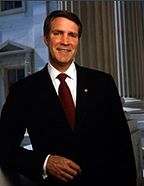U.S. Senate election, 2004
|
|
||||||||||||||||||||||||||||||||||||||||||||||||||||||||||||||||||||
|---|---|---|---|---|---|---|---|---|---|---|---|---|---|---|---|---|---|---|---|---|---|---|---|---|---|---|---|---|---|---|---|---|---|---|---|---|---|---|---|---|---|---|---|---|---|---|---|---|---|---|---|---|---|---|---|---|---|---|---|---|---|---|---|---|---|---|---|---|
|
||||||||||||||||||||||||||||||||||||||||||||||||||||||||||||||||||||
|
Class 3 (34 of the 100) seats in the United States Senate 51 seats needed for a majority |
||||||||||||||||||||||||||||||||||||||||||||||||||||||||||||||||||||
|
||||||||||||||||||||||||||||||||||||||||||||||||||||||||||||||||||||

Democratic gain
Democratic hold
Republican hold
Republican gain
|
||||||||||||||||||||||||||||||||||||||||||||||||||||||||||||||||||||
|
||||||||||||||||||||||||||||||||||||||||||||||||||||||||||||||||||||
The United States Senate elections, 2004 was an election for one-third of the seats in the United States Senate which coincided with the re-election of George W. Bush as president and the United States House election, as well as many state and local elections. Senators who were elected in 1998, known as Senate Class 3, were seeking reelection or retiring in 2004. This was the third consecutive election for Senate Class 3 where the Democrats failed to end up with a net gain. This also marked the first time since 1980 in which a presidential candidate from either party won with coattails in the Senate.
Republicans won six seats but lost two themselves, giving them a net gain of four seats: conservative Democrat Zell Miller of Georgia, who campaigned for President Bush, chose not to run for re-election and Republican Johnny Isakson won his seat; Democrat Fritz Hollings of South Carolina chose not to run for re-election and Republican Jim DeMint succeeded him; Democratic vice presidential nominee John Edwards did not run for re-election and Republican Richard Burr won his North Carolina seat; Democrat Bob Graham of Florida chose not to run for re-election, and his seat went to Republican Mel Martinez; Democrat John Breaux chose not to run for re-election and Republican David Vitter won his seat, and in South Dakota, Republican John Thune defeated the incumbent Senate minority leader Tom Daschle, the first time since 1952 that a sitting party leader lost re-election. Republican Senator Peter Fitzgerald of Illinois chose not to run for re-election and Democrat Barack Obama won in a landslide, becoming the Senate's only black member and only the third popularly elected since Reconstruction. Also, Republican Senator Ben Nighthorse Campbell of Colorado chose not to run for re-election and Democrat Ken Salazar won the open seat.
...
Wikipedia


